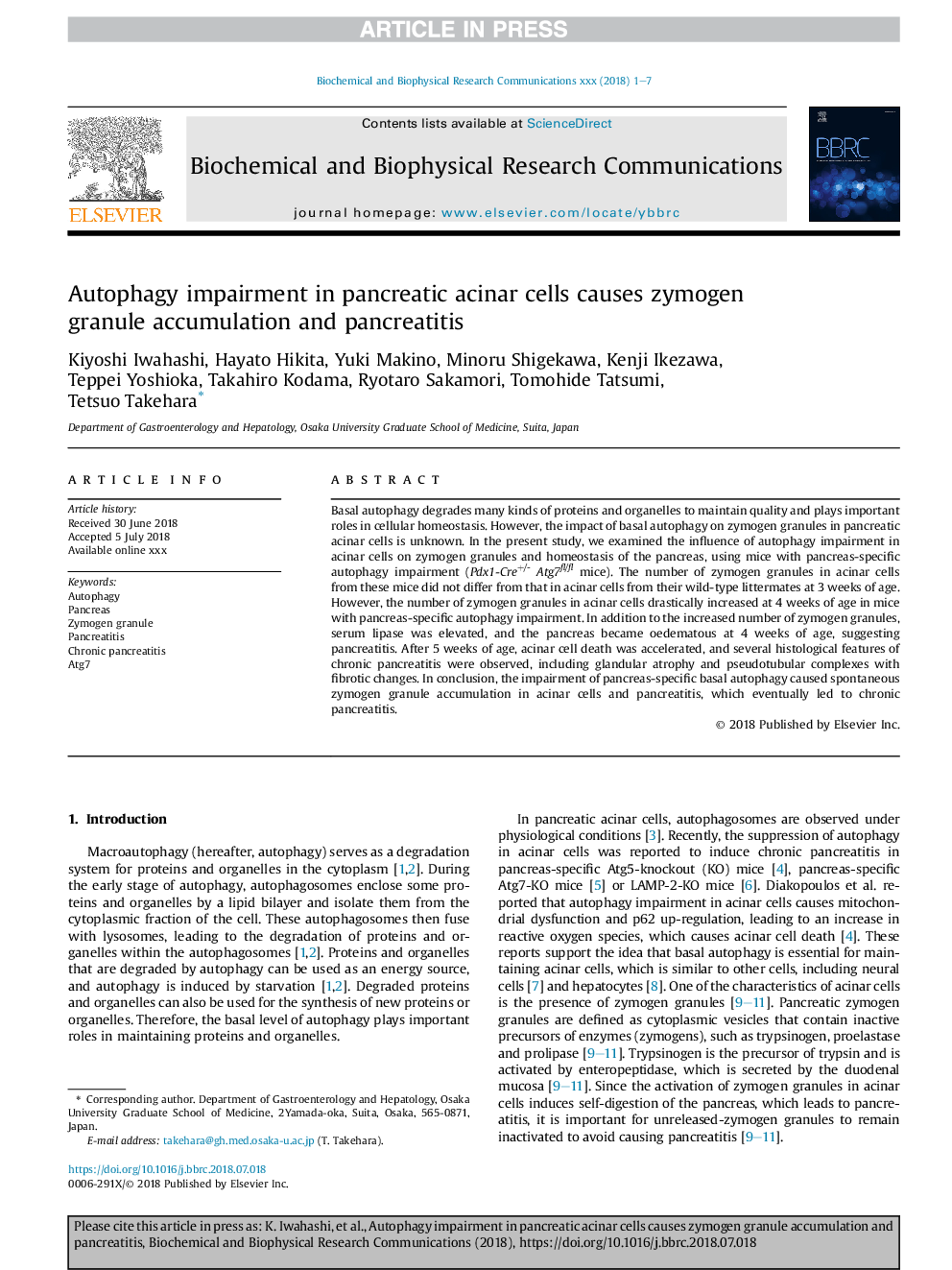| Article ID | Journal | Published Year | Pages | File Type |
|---|---|---|---|---|
| 8961829 | Biochemical and Biophysical Research Communications | 2018 | 7 Pages |
Abstract
Basal autophagy degrades many kinds of proteins and organelles to maintain quality and plays important roles in cellular homeostasis. However, the impact of basal autophagy on zymogen granules in pancreatic acinar cells is unknown. In the present study, we examined the influence of autophagy impairment in acinar cells on zymogen granules and homeostasis of the pancreas, using mice with pancreas-specific autophagy impairment (Pdx1-Cre+/-Atg7fl/fl mice). The number of zymogen granules in acinar cells from these mice did not differ from that in acinar cells from their wild-type littermates at 3 weeks of age. However, the number of zymogen granules in acinar cells drastically increased at 4 weeks of age in mice with pancreas-specific autophagy impairment. In addition to the increased number of zymogen granules, serum lipase was elevated, and the pancreas became oedematous at 4 weeks of age, suggesting pancreatitis. After 5 weeks of age, acinar cell death was accelerated, and several histological features of chronic pancreatitis were observed, including glandular atrophy and pseudotubular complexes with fibrotic changes. In conclusion, the impairment of pancreas-specific basal autophagy caused spontaneous zymogen granule accumulation in acinar cells and pancreatitis, which eventually led to chronic pancreatitis.
Related Topics
Life Sciences
Biochemistry, Genetics and Molecular Biology
Biochemistry
Authors
Kiyoshi Iwahashi, Hayato Hikita, Yuki Makino, Minoru Shigekawa, Kenji Ikezawa, Teppei Yoshioka, Takahiro Kodama, Ryotaro Sakamori, Tomohide Tatsumi, Tetsuo Takehara,
